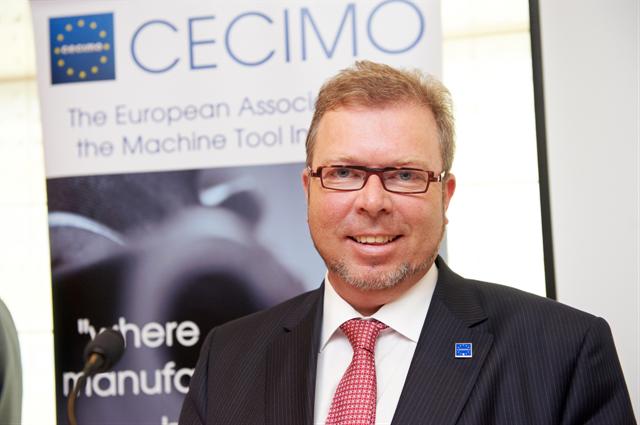 Filip Geerts |
The EU machinery industry has warned that its competitiveness could suffer a serious setback from the EU's continued failure to introduce a better market surveillance system.
The system is considered essential to fight unfair competition in the machinery market caused by the entry and circulation of non-compliant products.
EU member states are divided on the topic of the "marking of origin", hindering further progress on the draft regulation on the market surveillance of products (MSR). The industry is pessimistic about the proposal being adopted in the current parliamentary term before April
(Forkliftaction.com News #652).
Filip Geerts, director general of the European Association of the Machine Tool Industries (CECIMO), says: "Our industries are the collateral victims of a political deadlock in the Council on a subject that is actually not related to market surveillance.
"Meanwhile, non-compliant products in the single market continue to harm industrial competitiveness. This does not only hold back industry's growth potential, but also harms users' safety, the environment as well as progress to meet the EU's energy and climate targets."
Representing the EU machinery alliance consisting of CECIMO, CECE, CEMA, EUROMAP and FEM, Geerts says the situation is "unacceptable" in light of the fact that it comes days after the European Commission's Communication on an Industrial Renaissance that made industrial competitiveness a top EU priority.
He explains that by restoring the level playing field in the market through improved market surveillance, a shift from price competition to competition on quality, reliability and resource-efficiency will be seen. The latter, he says, is a pre-requisite for the success of Europe's high value-added industries in the midst of global competitive pressures.
"Despite the fact that the European Parliament's Internal Market Committee already adopted its report on the MSR proposal in October last year, member states have still not managed to agree on a common negotiation position. This is due to a fundamental disagreement over the marking of origin - a provision included in the draft Regulation on General Product Safety (GPSR)," Geerts adds.
Since the MSR and GPSR proposals were bundled in a single legislative package, the fate of the MSR is linked to member states reaching an agreement on this provision.
Geerts says in the best-case scenario, the adoption of the MSR proposal will be deferred to the end of 2014. "If negotiations do not resume, the European Parliament is likely to vote on the dossier in plenary in April 2014. However, a lack of agreement between member states will make it extremely difficult to find a compromise between the two co-legislators."